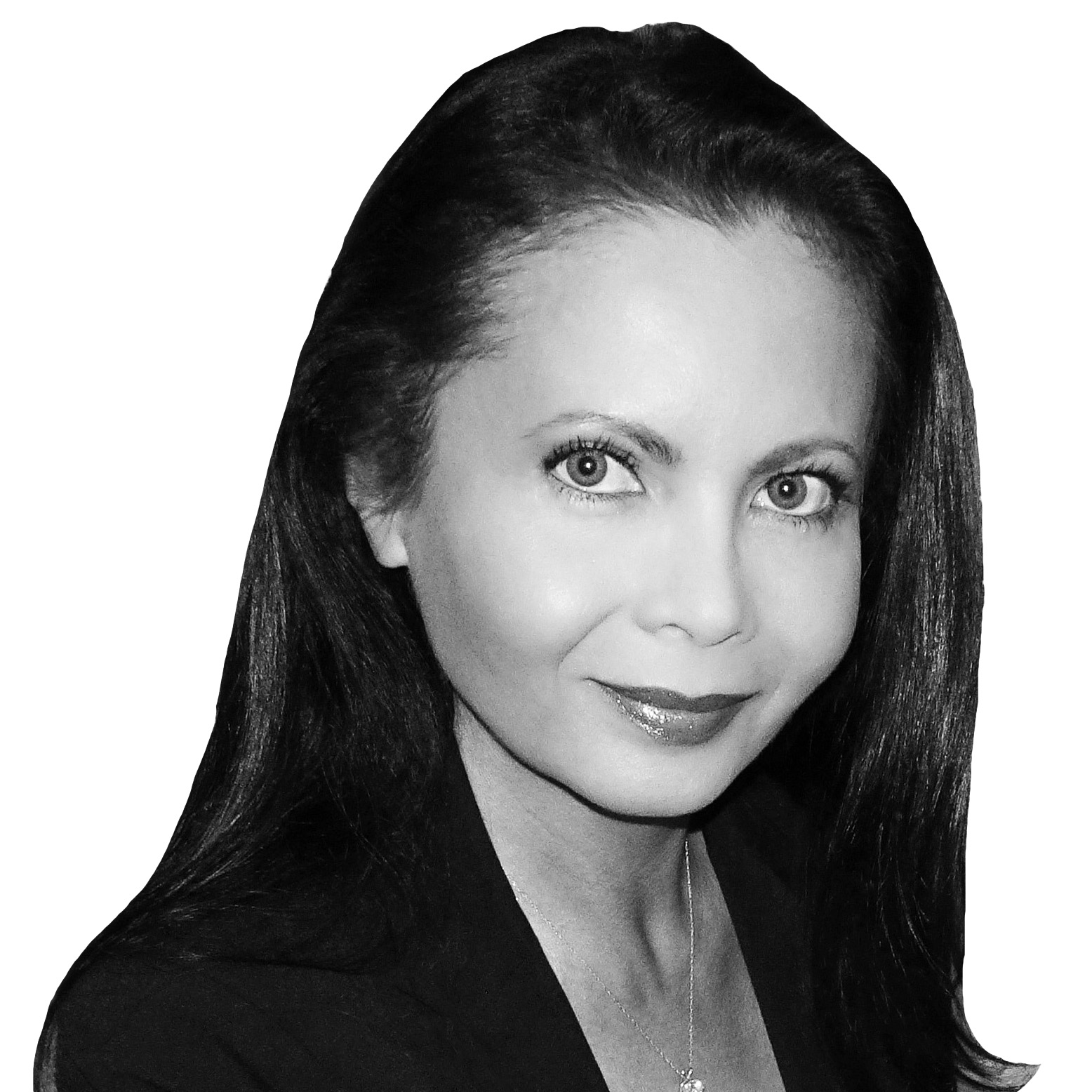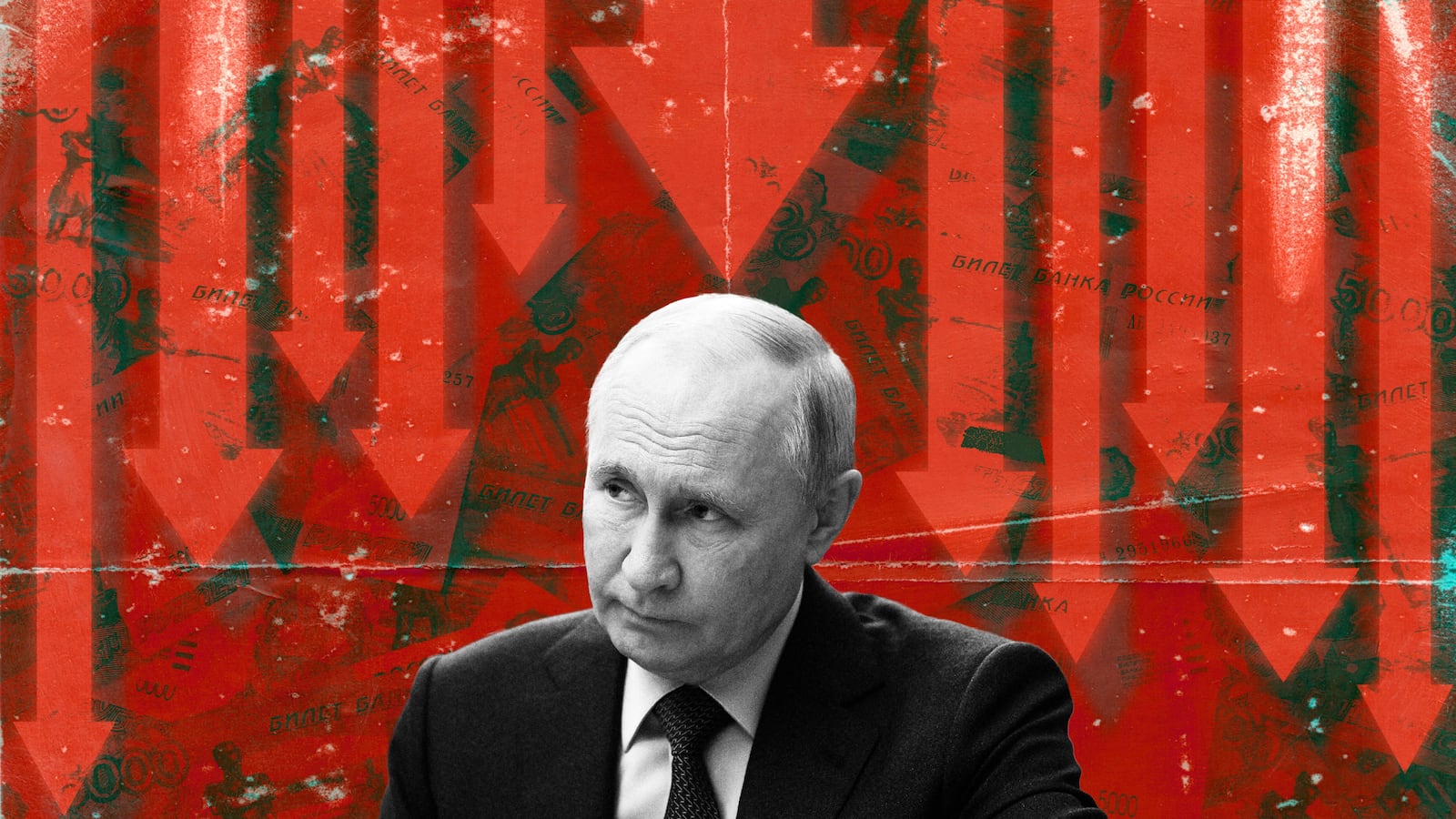For years, Russian government officials and state media propagandists have been claiming that Western sanctions don’t cause any real harm to their economy and to the contrary, actually help it develop. But the main industry that seems to be thriving despite the sanctions is the country’s military-industrial complex. As for everyday people, their lives are progressively getting worse.
During Russia’s New Year’s show The Little Blue Light 12 months ago, one of its hosts, Dmitry Guberniev assured the viewers that victory in Ukraine was near. He said, “Life is like a biathlon or ski racing. If you’re having a hard time, then the finish line is near.” During the same program, comedian Yevgeny Petrosyan claimed that the West had tried to destroy Russia but instead was forced to freeze and suffer without Russian gas supplies. He boasted: “Like it or not, Russia is enlarging!”
The mood was markedly different during this year’s festivities. Instead of laughing at the West, Petrosyan wished fellow Russians to have “barns and cellars that are fully stocked and regularly replenished with patience and optimism.”
This tempering of expectations is not coincidental. Russian President Vladimir Putin—who is running for re-election in March—and a bevy of state-funded propagandists insist that the invasion of Ukraine will not stop until Moscow’s goals are achieved. This also means there will be no relief from the impact of sanctions within Russia itself.
The relative stability of the Russian economy is ensured by injections of trillions of rubles from the budget, secured through the National Welfare Fund (NWF). Since the beginning of the invasion, half of this stash has already been spent. Analysts say that the remaining liquid part of the National Wealth Fund, $52 billion, wouldn’t be enough to handle another crisis.
The Russian ruble showed its strongest decline since 2015 and became one of the three weakest currencies of developing countries tracked by Bloomberg. This comes at the same time as a “demographic catastrophe” bemoaned by Russian experts and commentators, which has seen migration exacerbate a natural population decline in almost half of the regions. Migrants from the CIS nations are also less inclined to work and live in Russia, due in part to a weakening ruble and also because police raids, rounding up migrants for military mobilization, have become so frequent.
In 2023, therapists reported an increase in complaints about permanent stress and financial worries. The poorest Russians, including pensioners, suffer the most. Just in time for the holidays, the price of eggs in Russia shot up by 40 percent or more and their availability greatly diminished. Some regions started to limit the number of eggs an individual could buy, with some stores even selling them individually. This was an especially sensitive issue, since a traditional New Year’s salad, the Olivier, requires eggs as one of its main ingredients. During his annual televised event, Direct Line, Putin had to apologize for the rising egg prices—a fact that even state TV propagandists described as “shocking.”
Experts on TV show The Meeting Place blamed the sanctions and economist Alexey Zubets suggested that people can switch from eggs to “better sources of protein, like beef.” Even hosts, Ivan Trushkin and Andrey Norkin, seemed shocked by his callous attitude, which resembled Marie Antoinette’s legendary “Let them eat cake.”
Egg shortages prompted Russia to step up imports from other countries, including Turkey and Azerbaijan. Chicken is also disappearing from grocery store shelves.
Russian State Duma Deputy Speaker Vladislav Davankov, who filed his paperwork to the Central Election Commission to take part in the 2024 presidential campaign, accused the Federal State Statistics Service of fudging the numbers “to make it seem that all is well with the prices.” He said that prices on many items, including rice, grains, and butter, are rising 10-30 percent faster than officials claim. “When statistics diverge from reality, it is impossible to make effective decisions to curb prices,” Davankov added.
According to official statistics, basic food products sharply rose in price: eggs by 59 percent, tomatoes by 52 percent, bananas by 46.5 percent, cabbage by 29 percent, poultry by 27.7 percent, and apples by 20.7 percent.
Polls reveal that two-thirds of Russians complain about the prices rising at a faster pace—and that Russians in general are tired of war, with over 50 percent of participants hoping for the end of the so-called “special military operation” as their biggest wish for 2024. Witnessing Western hesitation to continue aid to Ukraine, Putin is unlikely to grant the wish of his own citizens anytime soon. Russian lawmakers and other state TV propagandists promise an expanded agenda, with all of Ukraine on the menu. Encouraged by the disarray in the U.S., they hope for a civil war in America that will permanently distract the country from helping Moscow’s intended victims.
With Putin’s unrelenting grip on power, the suffering of his own people seems inconsequential, as opposed to the illusory “greatness” of conquering other nations. The escalating brutality with which the Kremlin welcomed the New Year in 2024 shows that many challenges lie ahead for Ukraine and its global allies, but Russia is certainly not escaping the economic and demographic consequences of its own actions.





